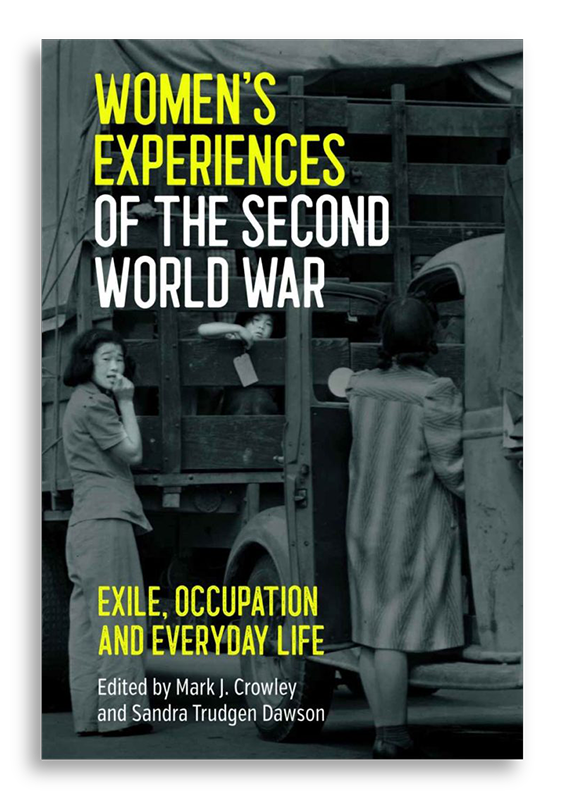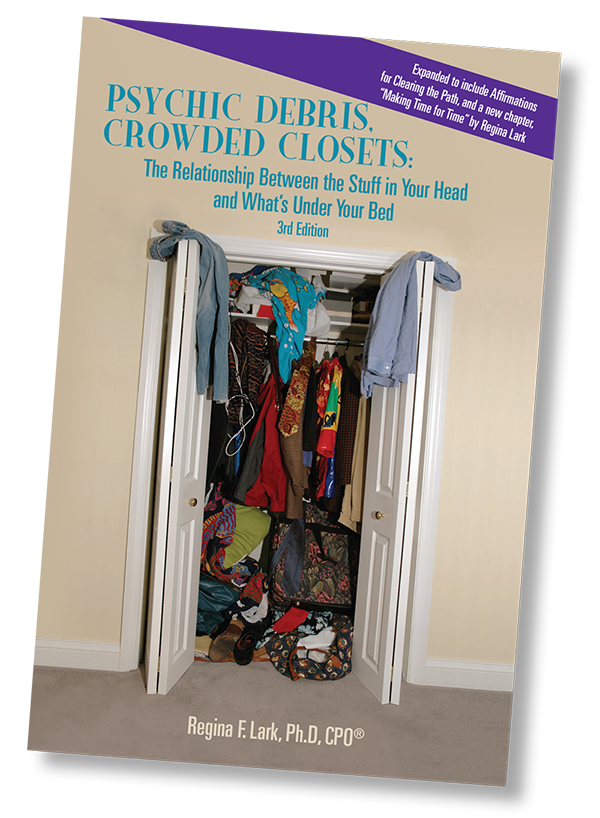Psychic Debris, Crowded Closets
The Relationship Between the Stuff in Your Head and What’s Under Your Bed
The third edition of Psychic Debris continues the journey toward self-discovery based on new information in the realm of time management and productivity. Although “time management” is impossible (time is fixed and we can’t do anything about it!) the new chapters unlock the mysteries of managing your relationship to time. Also new, is a list of positive affirmations to help un-clutter the mind of psychic debris – “head trash” that keeps us from realizing our goals. Is a cluttered closet a manifestation of a cluttered mind? Regina Lark’s Psychic Debris and Crowded Closets is about understanding the relationship between the stuff in our head and what’s under our bed. to serve readers as a workbook, a journal, and a reflection of your desire to learn more about your connection to clutter and its impact on body, mind, and spirit. Open your heart and head, and your closets and cupboards, then consider these alternate ways out of the mess. Psychic Debris and Crowded Closets creates the foundation to help your understand your relationship between the stuff in your head and what’s under your bed.

Nao Deixe Para Depois – A Relacao Entre Bagunca Mental E Armarios Abarrotados (Em Portugues do Brasil)
Não é porque algo trouxe felicidade no passado que precisa ser guardado para sempre” Um armário abarrotado é a manifestação de uma mente bagunçada? Não deixe para depois nos apresenta formas de entender a relação entre o lixo mental e a bagunça nos nossos espaços de trabalho ou em casa. De forma prática e objetiva, Regina F. Lark nos apresenta uma série de exercícios e reflexões acerca da relação entre a desordem e o impacto dela em nosso corpo, mente e espírito. Abra o coração, a cabeça e os armários e comece agora a se libertar da bagunça.
Purchase Now on AmazonWomen’s Experiences of the Second World War: Exile, Occupation and Everyday Life
Mark J. Crowley
Sandra Trudgen Dawson
The Second World War was a conflict that affected the everyday life of millions of people around the globe.¹ The war was truly global, and its impact felt far from the battlefields. Indeed, this was
Using a very wide range of detailed sources, the book surveys the many different experiences of women during the Second World War.
Many existing studies on the role of women in the Second World War concentrate on women’s increasing participation in the workplace and on their struggles to cope with rationing and shortages. This book goes further, exploring women’s wartime experiences much more fully. Drawing on a wide range of sources including oral interviews, scrapbooks, personal letters, diaries, newspaper articles, Mass Observation files and memoirs, the book illustrates some of the similarities and differences of women’s wartime experiences in different situations in different countries. Specific subjects covered include experiences of exile and living under occupation, of coping with proximity to fighting and to the frontline, and of dealing with everyday life in trying circumstances. The book draws out how factors such as political beliefs, nationalism, economics, religion, ability, geography and culture all had an impact. Overall, the book reveals a great deal about the complexities and nuances of women’s experiences in this period of enormous upheaval.

Contributors: Patricia Chappine, Nupur Chaudhuri, Sylvie Crinquand, Beth Hessel, Sarah Hogenbirk, Regina Lark, Bernice Lindner, Alexis Peri, Kelly Spring, Michael Timonin, Angela Wanhalla, Wai-Yin Christina Wong.


